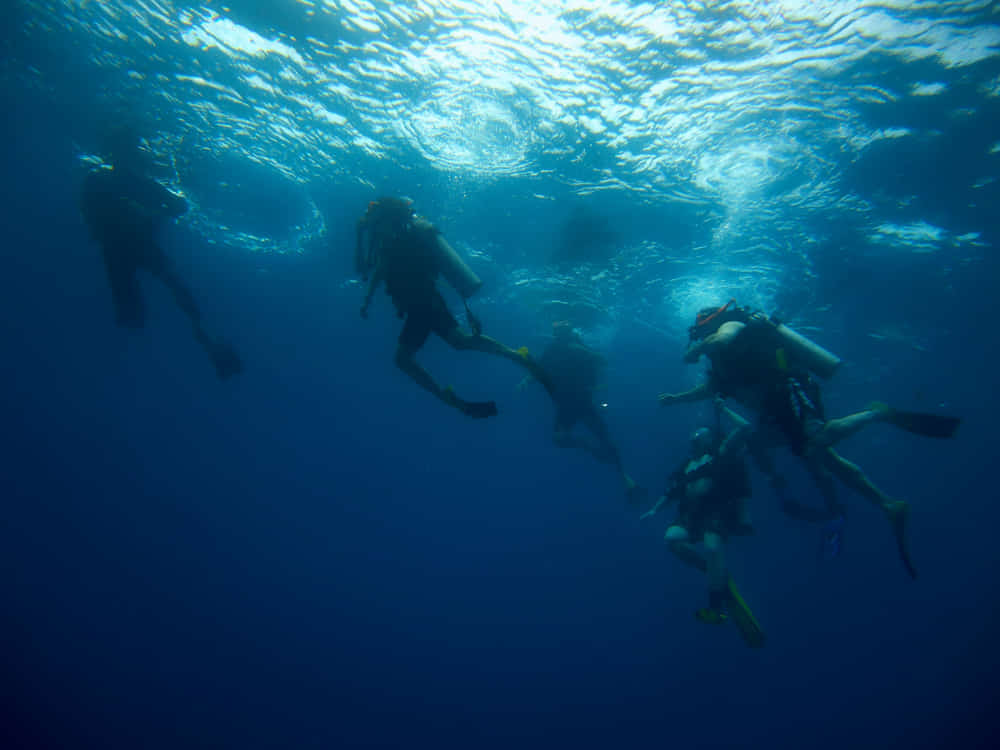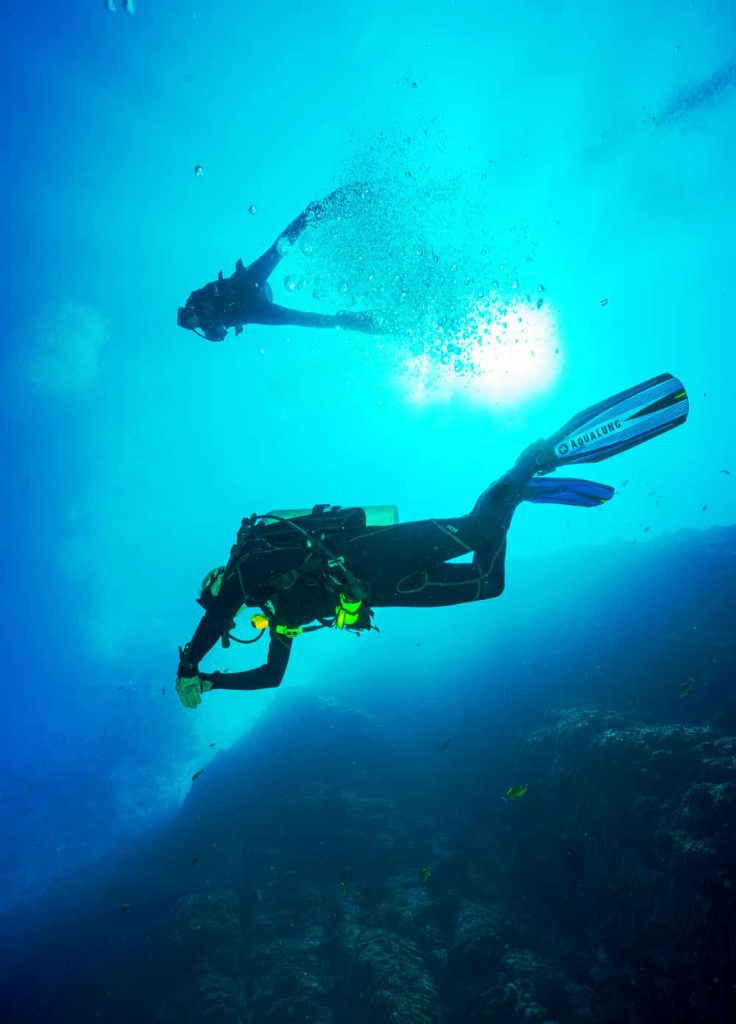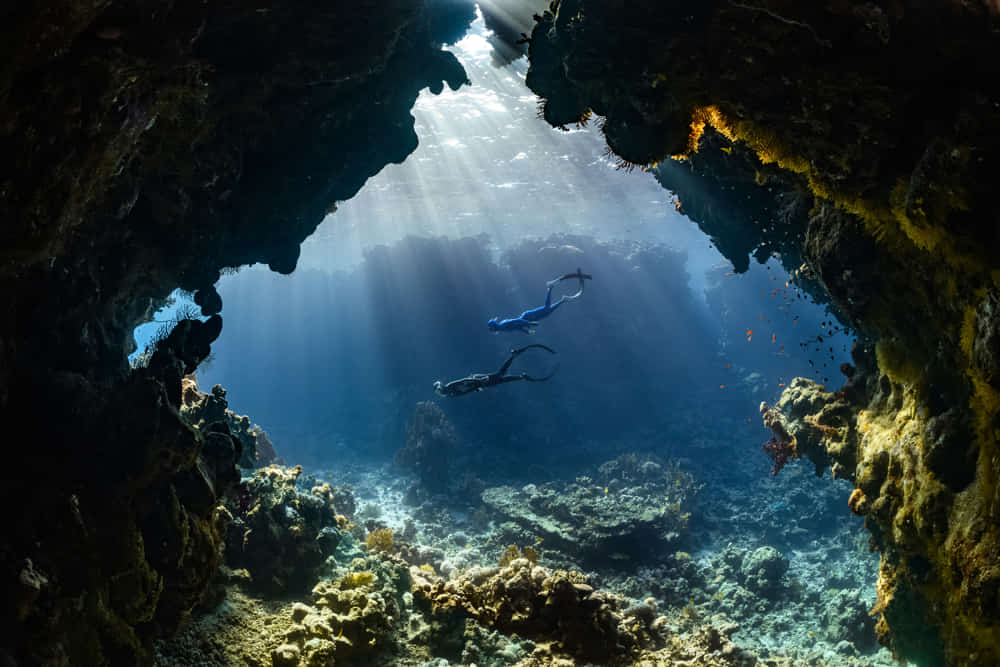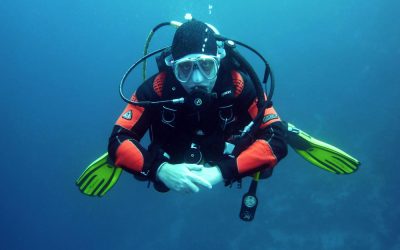Starting something new is always exciting. But when it comes to diving—it’s a whole different level. It’s an adrenaline rush for your body and mind that leaves you wanting more every time. Recreational diving has a way of becoming a lifelong passion, a healthy obsession, the perfect excuse to break away from routine and explore a fascinating underwater world—wherever you are.
This article is a great beginner’s guide. So, let’s start from the beginning…
Contents
What is recreational diving?
Recreational diving is as simple as discovering what lies beneath the surface. That explorer’s spirit alone is reason enough to make it worth it—purely for pleasure, not for work or any professional purpose.
You dive using special equipment (air tanks, regulator, BCD, etc.) to enjoy a unique and unforgettable experience.
The main difference between recreational diving and technical or professional diving is that here, the focus is pure enjoyment. That means staying within comfortable depth limits (up to about 30 meters/100 feet). No extreme decompressions, no overly complex gear—just you, the big blue, and a whole lot of marine life that will blow your mind… even through a regulator.

Why is recreational diving so addictive?
Remember that feeling of wonder you had as a kid when you looked at an illustrated book about the ocean? Well, diving is exactly that—letting yourself be amazed by an endless, stimulating, breathtakingly beautiful world.
There’s something almost magical about being able to breathe underwater, float in zero gravity, and connect with an ecosystem so different from your everyday surroundings.
And there are plenty more reasons why it’s addictive:
- Total disconnection: underwater, there are no notifications, no WhatsApp, no traffic, no emails to answer. Just peace, silence, bubbles, and species you’ve never seen before.
- Connection with nature: from swimming with turtles to seeing a reef bursting with color—it’s like being inside a BBC documentary… but you’re the main character.
- Post-dive high: that “Wow, I just saw an octopus in the wild!” feeling is hard to beat.
- Community factor: diving bonds people—fast. Often, you’re diving while traveling, in faraway places, so you meet fellow ocean lovers from all over the world.
What do you need to start diving?
Not much, really. Mainly enthusiasm, a bit of adventure spirit, and the ability to swim decently (or at least float efficiently). And we can’t stress enough the “enthusiasm” part—because when you’re passionate about something, nothing can stop you.
Here’s the basic checklist:
- Open Water course: This teaches you everything you need to dive independently up to 18 meters/60 feet. You’ll cover easy-to-grasp theory, practice in a pool, then head to the ocean to put it all into action. It gets you certified to dive anywhere in the world.
- Good overall health: With the exception of certain serious or chronic conditions, most people of almost any age can dive.
- An open, respectful attitude: toward the ocean, your instructors, and the marine life. This world belongs to everyone—enjoy it without harming it.
- (Optional) Dive gear: At first, you can rent everything, but it’s good to get familiar with your own regulator, BCD, mask, fins… and of course, wetsuit.

Recreational diving with DPM Diving: Courses, destinations & good vibes
Okay, we know this sounds like self-promo… but we really love what we do!
At DPM Diving, we’ve been sharing our passion for recreational diving with thousands of people from around the world for over a decade. Whether it’s your first dive or you’re aiming to become an advanced diver, we have the perfect course for you—with certified instructors, guaranteed good vibes, and some of the most amazing destinations.
Where can you find us? In places like Nusa Penida, the Gili Islands, Koh Tao, or Phi Phi. Sounds good, right? Living it is even better. Expect a great atmosphere, dreamlike beaches, and, of course, breathtaking marine biodiversity.
Courses we offer
- Open Water Diver (the perfect starting point)
- Advanced Open Water
- Nitrox, Night Diving, Underwater Photography… and more.
What makes us different?
- Small groups, personalized attention, and our own boats
- A school atmosphere that’s professional yet relaxed—tropical style
- Passion for the ocean and full commitment to its conservation
Tips for your first diving experience
If you’re already convinced, here are a few key tips to make your first time underwater unforgettable:
- Relax: The first minutes can feel intense—everyone goes through it. Breathe slowly, trust your instructor, and enjoy.
- Ask questions: Nobody’s born knowing how to dive. If something isn’t clear, speak up—we’re here to help.
- Avoid walking with your gear on: Sounds silly, but it’s a classic rookie mistake. Dive gear is heavy out of the water—move carefully.
- Stay hydrated and take care of yourself: Diving is more tiring than you think. Eat well, drink water, and rest between dives.
- Protect the marine environment: Don’t touch coral, don’t chase fish, and never leave trash behind. The ocean will thank you.
Recreational diving isn’t just another vacation activity—it’s a gateway to another world, a mental reset, and an adventure that can change the way you see the planet.
Best of all? It’s within reach for anyone ready to take that first step.








0 Comments